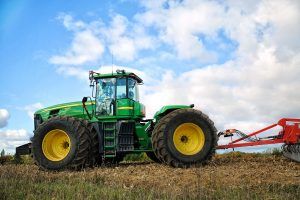Need Immediate help? Call 717-397-1010
After Hours Call / Text 717-471-2168
Need Immediate help? Call 717-397-1010
After Hours Call / Text 717-471-2168
 Workers’ compensation is a no-fault form of insurance that covers injuries that workers incur on the job. It is available for the protection of both the employer and the employee. For the employee, it provides compensation for medical expenses for injuries or illnesses that occur on the job, as well as compensation for lost wages and disability if applicable. For the employer, workers’ compensation offers protection against getting sued for injuries that take place on your farm: the availability of insurance precludes the workers’ right to file a personal injury claim. Though there is a Farm Labor Exemption for certain farm sites in Pennsylvania, most farms in the Commonwealth will not qualify for these exemptions, as they generally only apply to extremely small operations who hire workers for very short periods of time.
Workers’ compensation is a no-fault form of insurance that covers injuries that workers incur on the job. It is available for the protection of both the employer and the employee. For the employee, it provides compensation for medical expenses for injuries or illnesses that occur on the job, as well as compensation for lost wages and disability if applicable. For the employer, workers’ compensation offers protection against getting sued for injuries that take place on your farm: the availability of insurance precludes the workers’ right to file a personal injury claim. Though there is a Farm Labor Exemption for certain farm sites in Pennsylvania, most farms in the Commonwealth will not qualify for these exemptions, as they generally only apply to extremely small operations who hire workers for very short periods of time.
Pennsylvania’s Workers’ Compensation Act has a subsection that is specifically devoted to agricultural worksites. This section indicates that workers’ compensation is to be provided for employees if during a calendar year they pay wages to a single employee totaling $1,200 or more, or who employs a single employee for 30 or more days. Even if the farm has just one employee that meets that description, the workers’ compensation insurance coverage needs to be provided for all employees. The employers’ spouse or child under the age of 18 is not considered an employee under the law unless there is a specific written employment contract in place.
Many farm owners in Pennsylvania make the mistake of believing that they do not need to have workers’ compensation insurance because of the agricultural employee exemption, but the only farms for which this applies are generally those who only hire seasonal labor for extremely short periods of time. If an employer is required under the state’s rules does not purchase workers’ compensation insurance, they can be penalized for their failure to do so. They are also likely to be held liable for any injury that occurs on the job as a result of negligence.
If you are an agricultural worker who has been injured on the job, you are entitled to compensation for your injuries, but you need an experienced workers’ compensation attorney to guide you through the process and advise you of your rights. Contact the attorneys at Vanasse Law today to learn more.
 To most people, workers’ compensation is little more than a line item in their paycheck. They don’t know whether it’s something that they pay for or whether it’s provided by their employer, and they’re not entirely sure what it’s there for. That all changes once you’re injured on the job and suddenly realize that it’s there for you – to make sure that your medical expenses are covered, and you’ll be able to pay your bills, even if your injury keeps you from going back to work. Though workers’ compensation is what’s known as a ‘no-fault’ insurance policy that’s paid without having to prove who’s at fault, there are a couple of notable exceptions. Here are the circumstances under which injuries sustained at work are not covered.
To most people, workers’ compensation is little more than a line item in their paycheck. They don’t know whether it’s something that they pay for or whether it’s provided by their employer, and they’re not entirely sure what it’s there for. That all changes once you’re injured on the job and suddenly realize that it’s there for you – to make sure that your medical expenses are covered, and you’ll be able to pay your bills, even if your injury keeps you from going back to work. Though workers’ compensation is what’s known as a ‘no-fault’ insurance policy that’s paid without having to prove who’s at fault, there are a couple of notable exceptions. Here are the circumstances under which injuries sustained at work are not covered.
If you’ve been hurt while on the job and you’re not sure whether workers’ compensation benefits are available to you or not, contact the workers’ compensation attorneys at Vanasse Law to set up a consultation to discuss your situation.